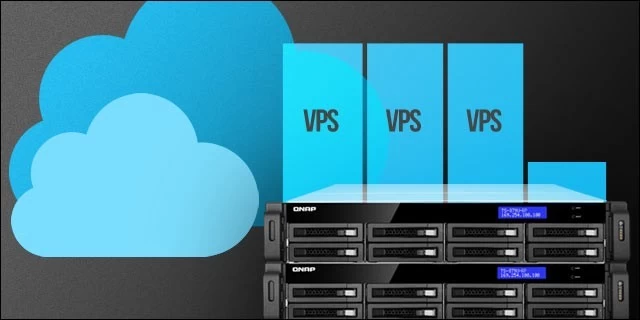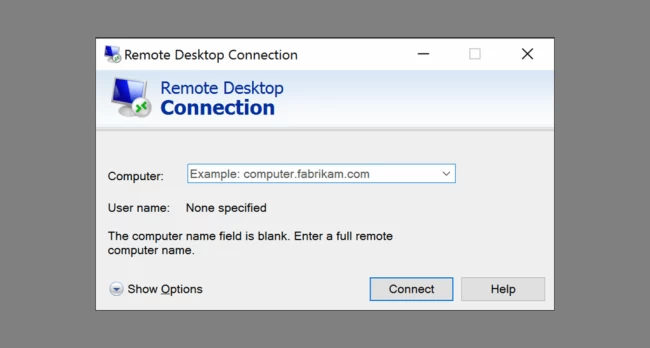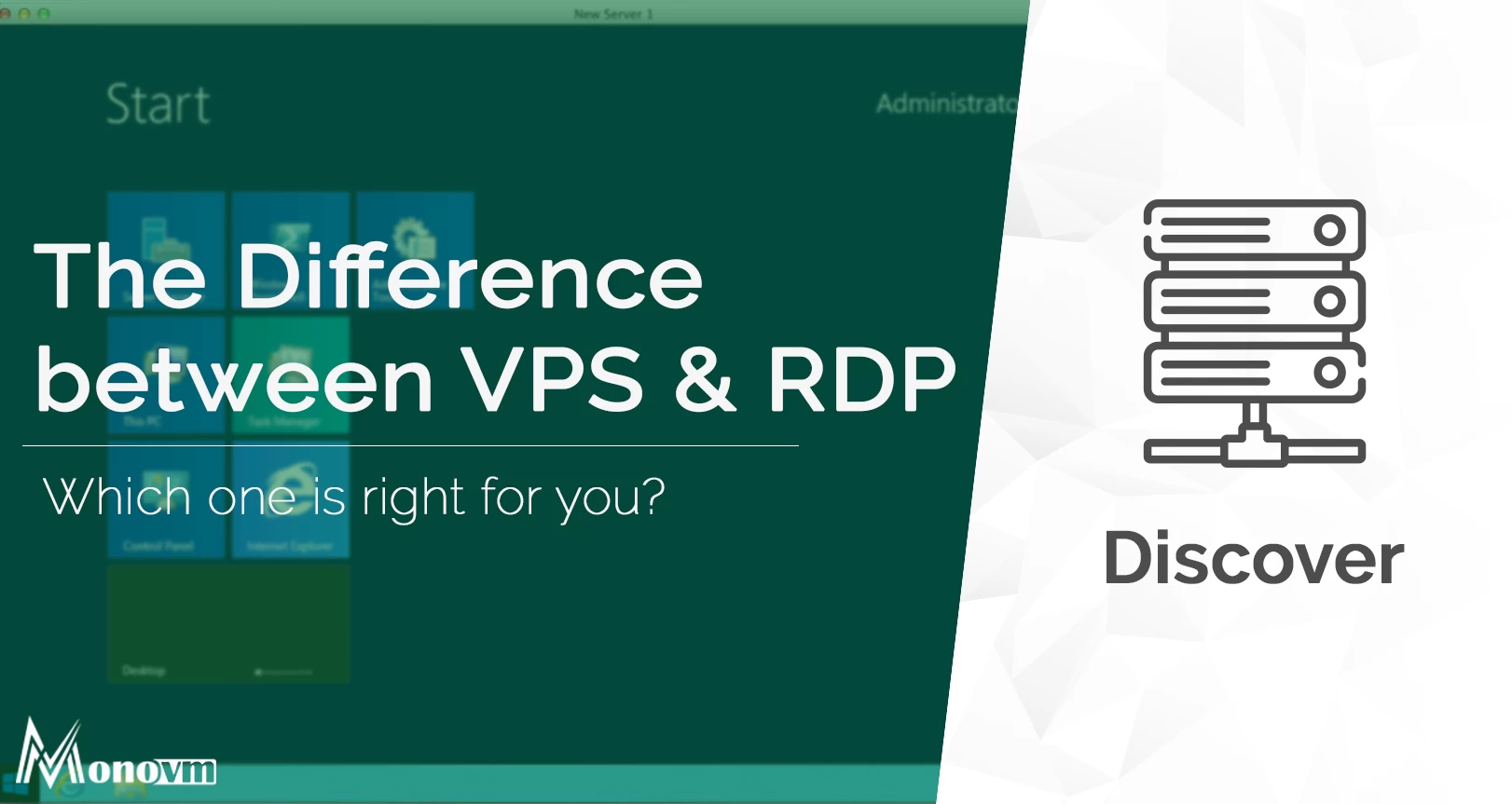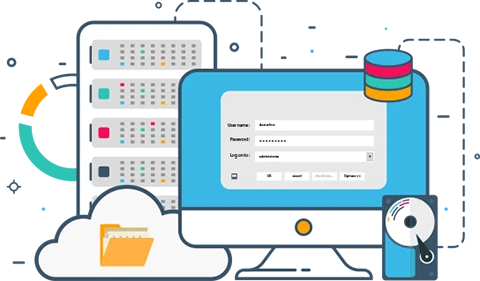List of content you will read in this article:
With the ever-growing popularity of the internet, computer technology is improving every day. Thanks to the high demand, there are many services and solutions that have become available to users. These solutions also include VPS hosting and RDP accounts, which we are going to differentiate, you will get a detailed head-to-head comparison guide between RDP vs VPS. Let's start off with understanding what exactly is a VPS and RDP.
What is a VPS? [Virtual Private Server]
VPS is an acronym that stands for what is vps? A VPS hosting environment mimics a dedicated server within a virtual environment. VPS hosting is one of several types of web hosting accounts you can choose to host your website online. The technology behind VPS hosting is similar to that of VMware or Virtual Box. These programs allow you to run several virtualized operating systems on one machine.
Need Affordable VPS Hosting
Starting From $5.99/Monthly
🏅 Fast Delivery
🏅 25+ Data Centers

Benefits of VPS
There are many advantages to having a virtual private server over other types of online hosting and storage services. Let’s get into them.
1. Dedicated resources
This point mainly relates to using a VPS for hosting purposes, however, it is still important in other cases nonetheless. The resources available for use by the virtual machine are assigned during its creation and could possibly be modified later by the server administrator. Regardless of the activities done by the other VPS on the server machine, you will always have access to these resources.
2. Choice of OS
Unlike an RDP, which only supports Windows OS servers, with a VPS, you get a wide variety of operating system choices. Most Best VPS providers will even allow you to install a custom OS that fits your needs. The only other way to have this freedom is to get a dedicated server, however, those are in a completely different price range.
3. Administrative or Root access
Now, this is a big advantage for just about any user. Having the ability to install any application you want is something that is often taken for granted by computer users as just about anyone has this ability on their own system. Thus, it comes to the surprise of many beginner WebHost users that in the world of web hosting and similar services, this is not always a given. In fact, services such as shared hosting and RPD accounts do not offer such capabilities.
4. Dedicated IP
Unlike the way it is with shared hosting, getting a VPS will also grant you a dedicated IP that you will use to connect to the server.
5. Freedom of functionality
Although in most cases a VPS will be used for web hosting, the possibilities that can be done with the virtual machine are nearly endless. You can also use it to run a VoIP (voice over IP) server, game server, backup server, and much more.
Disadvantages of VPS
Of course, no service is perfect. No matter how good the hardware & software are or how much functionality the VPS has, there will be some disadvantages. Here are some of these drawbacks.
1. Requires some technical experience
A server without a configuration on it, a VPS is just a bunch of computer components put together. Regardless of the function(s), you want the server to execute, a good configuration must be set up, preferably also considering safe cybersecurity practices. This task, although not very challenging, could prove difficult for users with little to no technical experience.
2. Not 100% in control
Although, with the help of virtualization technology the virtual servers are completely separated, they are all still running on a single machine which is under the control of the service provider. Despite having admin access to the OS, VPS users do not have full control over their environment when compared to dedicated server users.
3. Price
This one shouldn’t come as a surprise; for more features and functionality, you will have to shed some extra cash. VPS servers are just more expensive than RDP accounts, and way pricier than shared hosting. When compared to an RDP account, the price difference might be just a few bucks, but in the long run, it does add up.
What is RDP? [Remote Desktop Protocol]
RDP is a Microsoft protocol designed to facilitate application, data transfer, security, and encryption between client users, devices, and a virtual network server. It enables a remote user to add a graphical interface to the desktop of another computer. Each RDP Server is shared among ~10 remote desktop accounts. You don't get administrator access to the server but all the work you do in your RDP Account is 100% private.
Put simply, an RDP account as a service is a remote Windows environment that you can connect to and use the preinstalled applications, without having admin access.

Benefits of RDP
1. Easy to use
The Remote Desktop Protocol was designed with ease of use in mind. All you need is to simply open the Remote Desktop Connection application on the computer you are connecting from and enter the IP address of the system you are connecting to. After that, it is as straightforward as using your actual machine.
2. No technical experience required
Once you purchase an RDP account, it will be automatically set up by the provider and you should have access to the full-fledged service. There is no need to execute a complex setup of the server, all the functionality is available as soon as you get your login credentials. An RDP also removes the need to have constant management of the server. Simply connect to it and use it to your heart’s content; the best RDP provider will take care of maintenance and security updates.
3. Price
This is the one advantage that will most probably attract the most users. Although the price difference could be as little as only $2 USD, this price is paid monthly and thus can accumulate to a decent amount of money. Look at it this way, if you were to get an RDP for 6 months instead of a VPS, you could use the saved money to purchase a domain for a year.
Disadvantages of RDP
1. No administrative access
If just having an RDP account is your goal, then you are out of luck with getting administrative privileges. The only way to make that happen is to get an RDP server instead. Nevertheless, you could still request for the provider to install specific software for your RDP account.
2. No multiple monitor support
Unlike similar services such as TeamViewer, RDP does not support multiple monitors on the terminal server. There is no feature to toggle between multiple screens.
3. Less functionality
When compared to a VPS, the possibilities of what could be accomplished with the service are quite narrow. The lack of admin access simply adds to the functionality restrictions.
VPS vs RPD
In the realm of virtual computing, the choice between VPS (Virtual Private Server) and RPD (Remote Desktop Protocol) entails a comprehensive evaluation of various factors. Both options offer distinct features and functionalities that cater to diverse needs and preferences. To facilitate a clearer understanding, let's delve into an overview table comparing VPS and RPD across different aspects:
Resources
When comparing VPS and RPD in terms of resources, VPS typically provides dedicated resources allocated to each virtual server. These resources include CPU, RAM, storage, and bandwidth, ensuring consistent performance and reliability. On the other hand, RPD relies on the resources of the host machine, potentially leading to resource contention if multiple users are accessing the system simultaneously.
Performance
Performance is a crucial aspect to consider when choosing between VPS and RPD. VPS tends to offer better performance due to its dedicated resource allocation and isolation from other virtual servers. This setup ensures that the performance of one VPS instance is not affected by the activities of neighboring instances. In contrast, RPD's performance may vary depending on the host machine's capabilities and the number of concurrent users accessing it.
Security
Security is paramount in any computing environment. VPS offers a higher level of security compared to RPD, primarily due to its isolated nature. Each VPS operates independently, with its own operating system and security settings, reducing the risk of unauthorized access or data breaches. RPD, on the other hand, relies on the security measures implemented on the host machine, which may pose vulnerabilities if not properly configured.
Customization
Customization options play a significant role in meeting specific requirements and preferences. VPS offers extensive customization capabilities, allowing users to install and configure software, modify system settings, and even choose their preferred operating system. RPD, while still customizable to some extent, may have limitations depending on the host machine's configuration and software restrictions.
Management
Effective management is essential for maintaining and optimizing virtual computing environments. VPS typically comes with robust management tools and interfaces that facilitate easy deployment, monitoring, and maintenance of virtual servers. RPD may require more manual intervention for tasks such as software updates, system maintenance, and user management, depending on the host machine's setup.
Cost
Cost considerations are crucial for individuals and businesses seeking economical yet efficient solutions. VPS pricing structures vary depending on factors such as resource allocation, scalability options, and service providers. While initial costs may be higher compared to RPD, the dedicated resources and flexibility of VPS justify the investment for many users. RPD, on the other hand, may offer lower upfront costs but can incur additional expenses for hardware upgrades, maintenance, and licensing fees.
Complexity
The complexity of setup and management is another aspect to consider when choosing between VPS and RPD. VPS solutions often come with user-friendly interfaces and documentation, making it relatively straightforward to set up and configure virtual servers. RPD, especially for individuals with limited technical expertise, may pose a steeper learning curve due to its reliance on remote access protocols and host machine configurations.
Setup
Setting up a VPS involves provisioning a virtual server instance, selecting desired configurations, and configuring the operating system and software applications. Many VPS providers offer intuitive control panels or command-line interfaces for streamlined setup processes. In contrast, setting up RPD typically involves configuring remote access settings on the host machine and installing compatible client software on remote devices.
Control
Control over the virtual environment is essential for tailoring it to specific needs and optimizing performance. VPS grants users full control over their virtual servers, allowing them to install, configure, and manage software applications and system settings according to their requirements. RPD, while providing remote access to a host machine, may have limitations in terms of control and customization, depending on the permissions granted by the host administrator.
Configuration
Configuration flexibility is crucial for adapting the virtual environment to evolving needs and preferences. VPS offers extensive configuration options, allowing users to customize various aspects of their virtual servers, including CPU, RAM, storage, networking, and security settings. RPD, while offering some configuration flexibility, may have constraints imposed by the host machine's hardware and software configurations.
Scalability
Scalability is vital for accommodating changing workloads and resource demands over time. VPS solutions typically offer scalable options, allowing users to easily upgrade or downgrade resources as needed without significant downtime or data migration. RPD's scalability may be limited by the capabilities of the host machine and the number of concurrent users it can support efficiently.
Which is better, VPS or RDP Account?
In brief, RDP provides remote display and input capabilities over network connections for Windows-based applications running on a server, while VPS is a virtual machine that you can use to host your data and since VPS runs its own OS, you can get a Windows or Linux VPS server.
But which one should you get? That totally depends on your needs. If you want to host websites or want complete control of the server, you should probably go for a VPS. If you want a shared server with high configuration and without regard for administrator access you should go for RDP Account.
Conclusion
As mentioned in the above paragraph, there is no definite answer for choosing the best service between RDP vs VPS [Windows VPS or Linux VPS]. It solely depends on your needs and goals. However, We do hope that by explaining that the difference between VPS and RDP accounts, how the services operate and outlining their advantages and disadvantages, you will come to a more educated conclusion on which one will better suit your desires.
If you have any questions or suggestions, please leave them in the comment section down below.


My name is Linda, I have Master degree in Information Technology Engineering. I have some experiences in working with Windows and Linux VPS and I have been working for 2 years on Virtualization and Hosting.